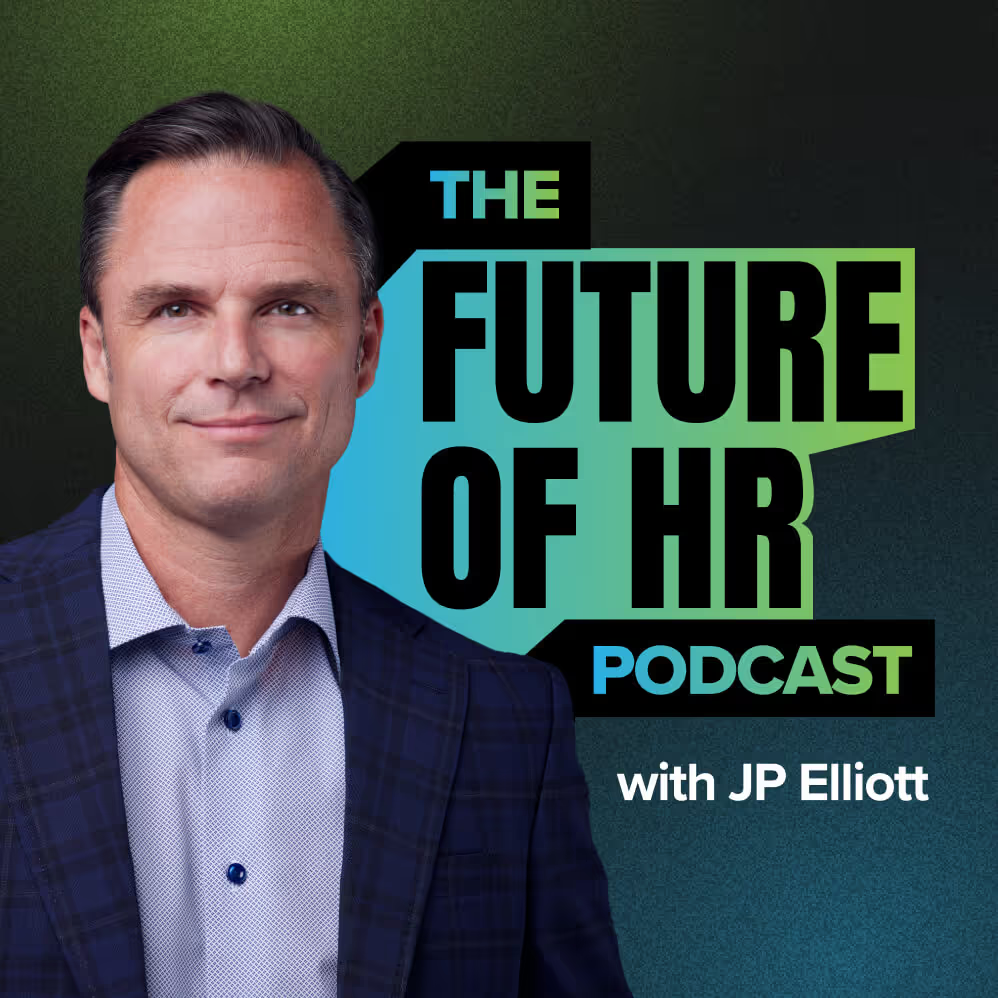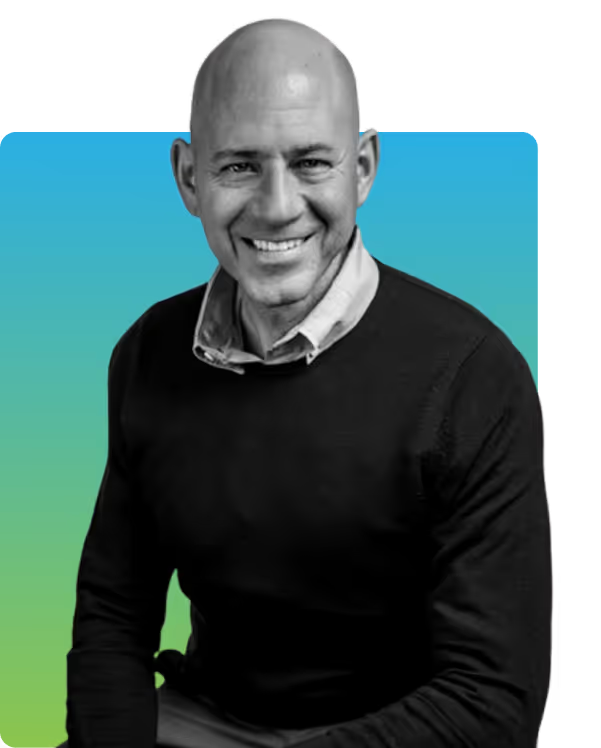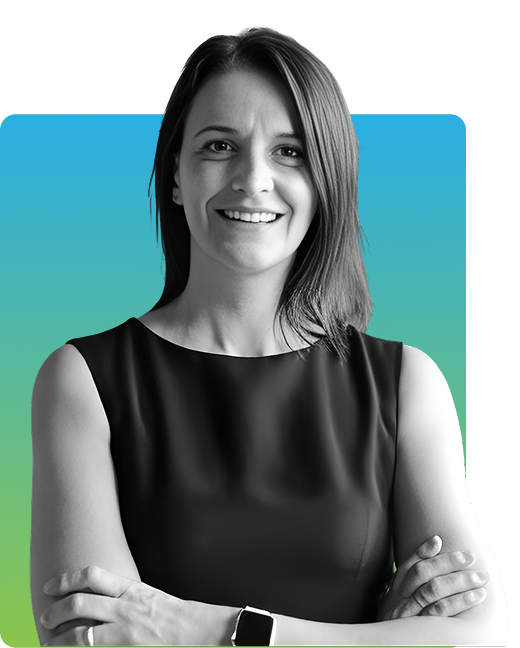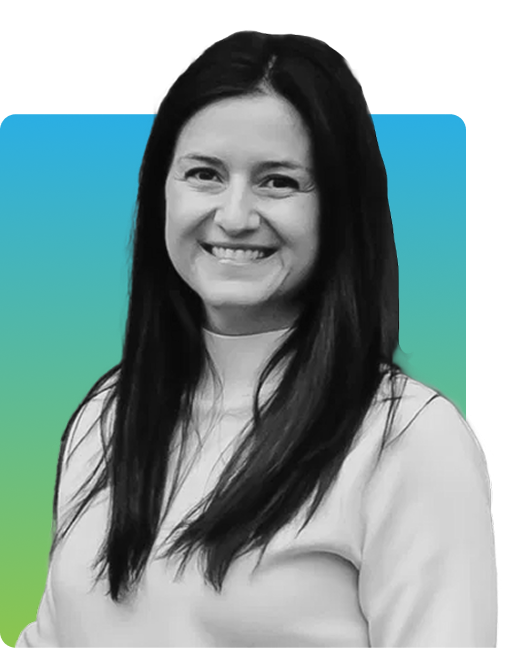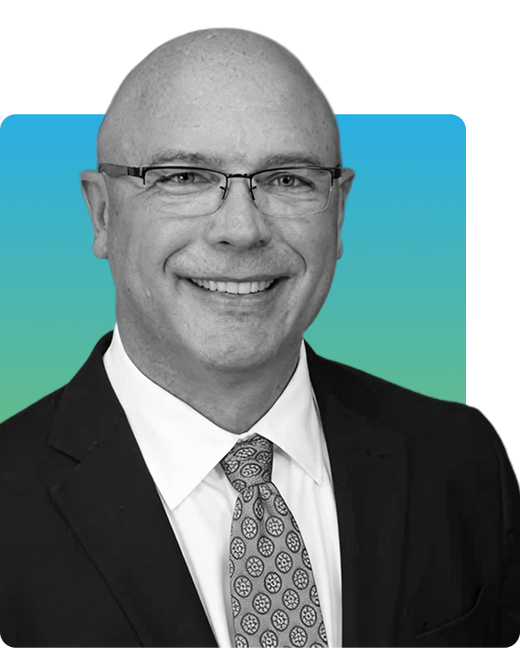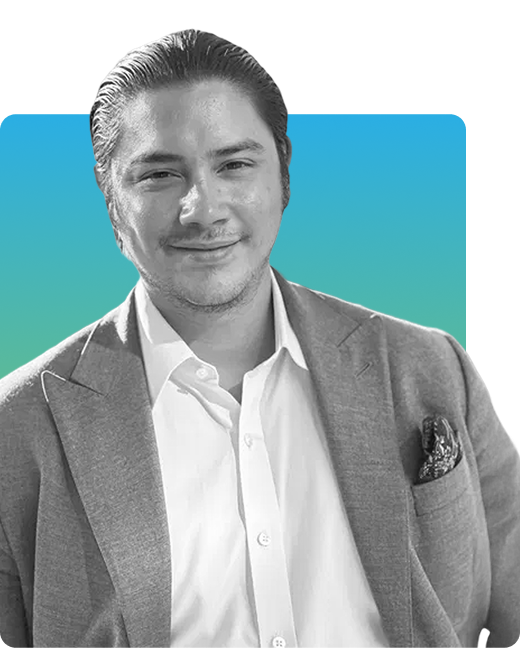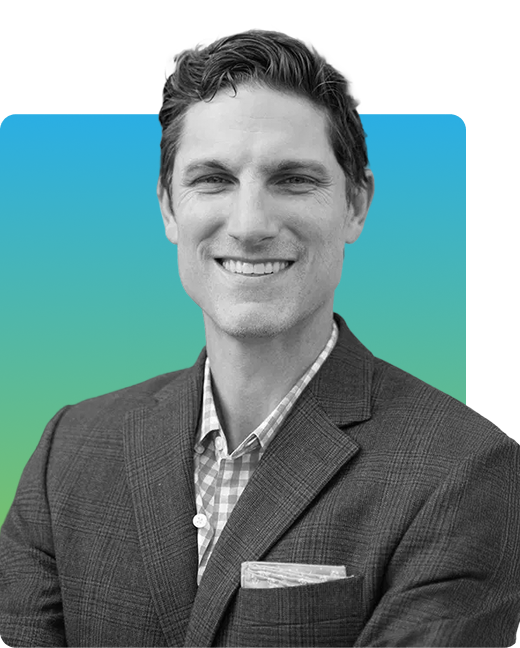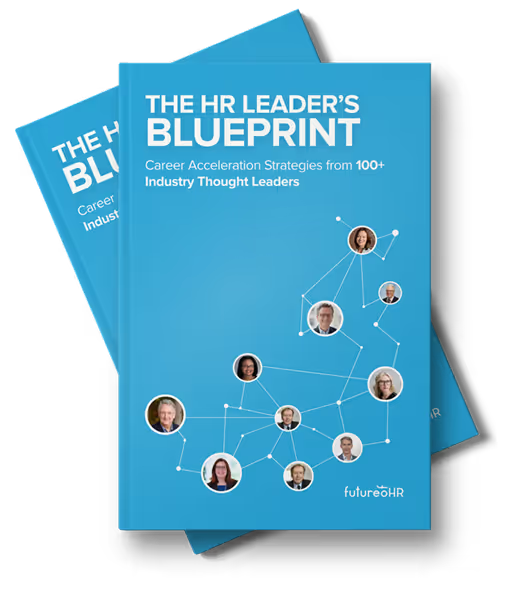Fast-track your career with The Future of HR Podcast
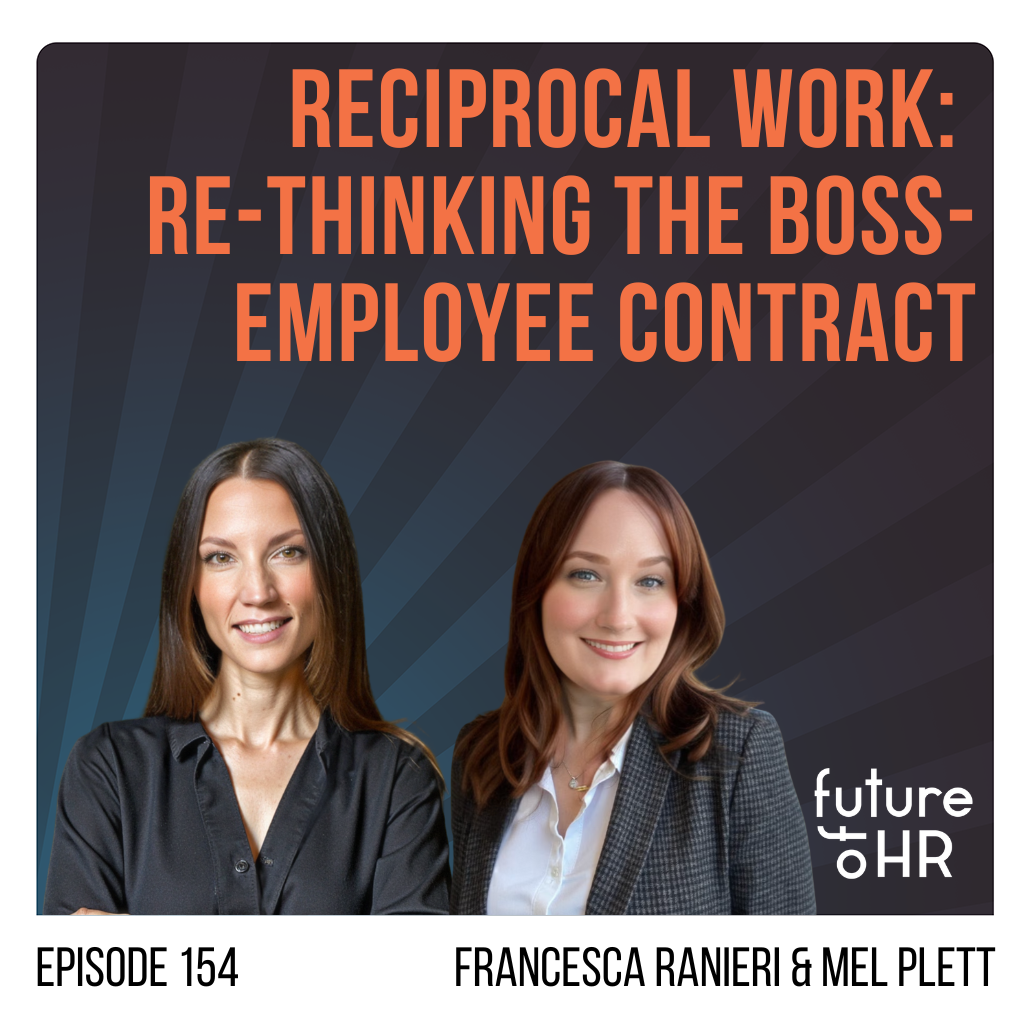
154
ep.
How can employees and bosses have honest conversations about what they want and need in their relationship? Why do employees have less than 30 days to build trust in the boss-employee relationship? My guests on this episode are with “Your Work Friends,” Francesca Ranieri, Founder & Head of Strategy, Frank & Mel Plett, Founder Cordelia Consulting. During our conversation Mel, Francesca, and I discuss: How their friendship grew into Your Work Friends—a consulting business and podcast. Why your boss relationship might matter more than your marriage. Why common myths about boss-employee relationships miss what workers and managers really want. What the "30-day cliff" is and why it matters How to create an HR strategy that results in changes employees can feel.

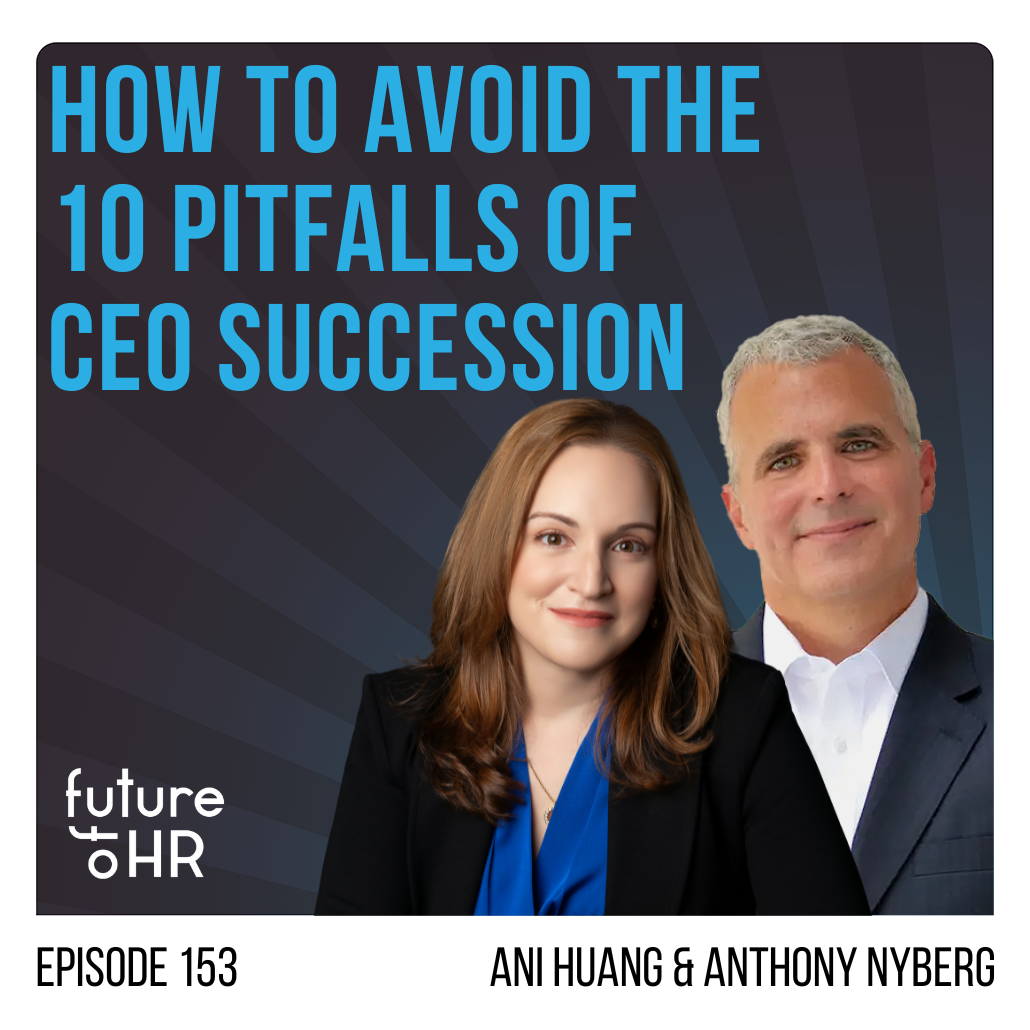
153
ep.
How does trust affect the CEO succession process? Why are CHROs often more critical than CEOs in shaping succession outcomes? My guests on this episode are Ani Huang, Senior Executive Vice President of the HR Policy Association and Anthony Nyberg, Director, Center for Executive Succession at University of South Carolina During our conversation Ani, Anthony, and I discuss: What first-time CHROs must know about CEO succession. Why trust between a CHRO, the board, and the CEO is critical for a successful succession process. How to give boards real exposure to top internal talent. How CHROs can help boards to assess internal vs. external talent objectively. Why CEO role profiles used for succession should be forward-looking and should evolve with strategy changes.

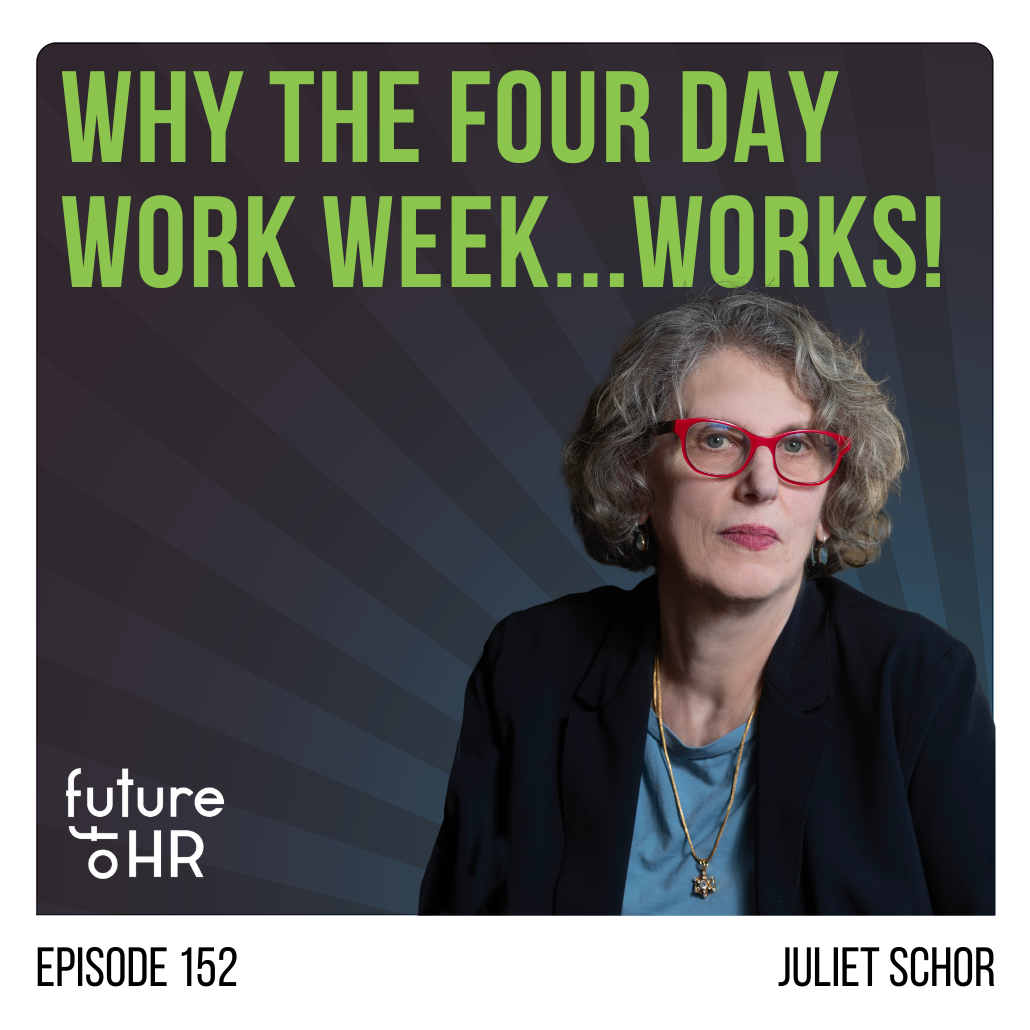
152
ep.
How can a four day week increase productivity while reducing burnout? Why is a four day week working so well for over 300 companies and thousands of employees? My guest on this episode is Juliet Schor, Professor at Boston College and author of “Four Days a Week.” During our conversation Juliet and I discuss: Why, despite decades of labor-saving technology, Americans are working longer hours than ever before. Why rethinking “productivity” is only part of the business case for a four-day week. How work redesign is the key to unlocking both productivity and employee wellbeing. How four-day work weeks dramatically improve retention and make organizations an employer of choice. Real-world examples of four-day work week in tech startups to large manufacturing and even restaurants.

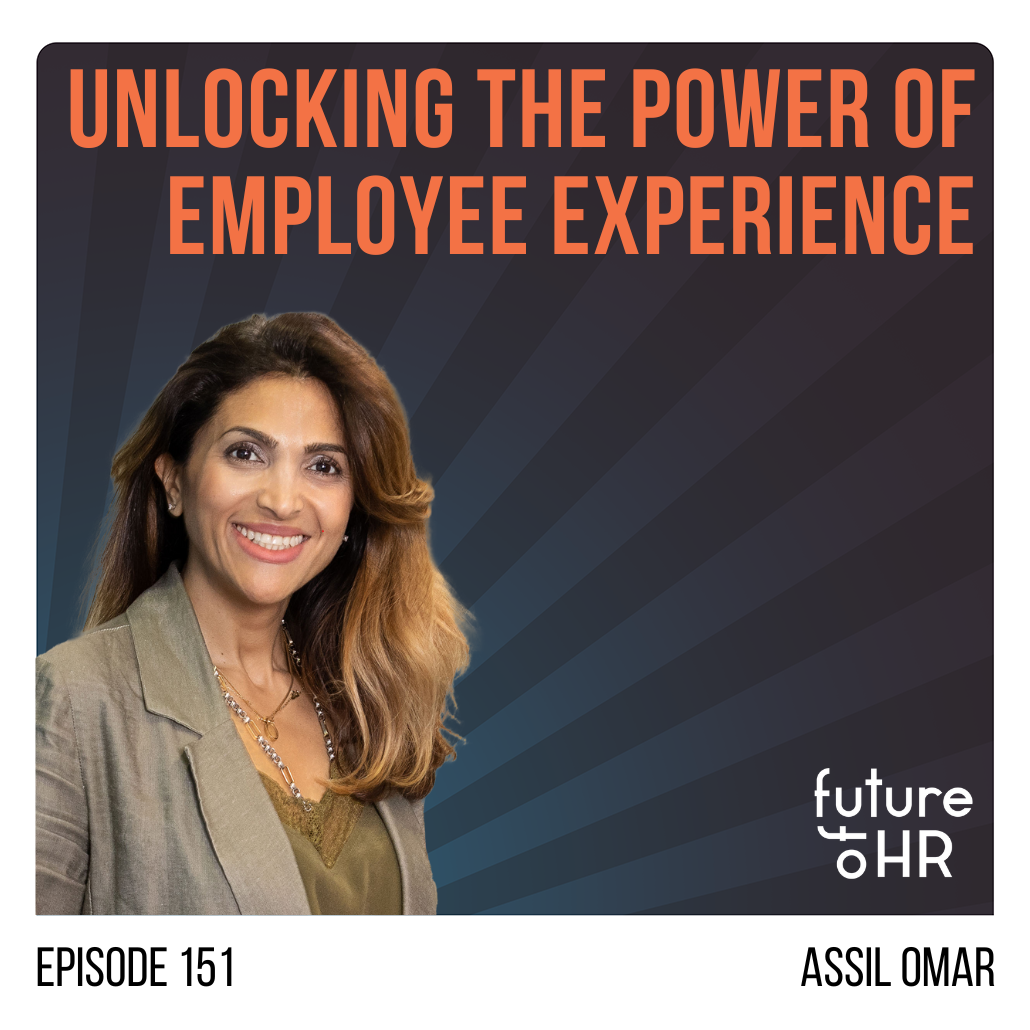
151
ep.
How do you unlock the power of employee experience? Why is a people-first mindset so critical in modernizing HR? My guest on this episode is Assil Omar, VP, People Experience, AbbVie During our conversation Assil and I discuss: Why we should embrace new opportunities as a way to reinvent ourselves and our careers. How AbbVie maintains a unique culture of purpose, performance, and care Why HR practitioners must become students of both human motivation and organizational transformation to drive real impact. Why it’s important to start with the employee experience first when designing systems. Her advice to HR leaders who want to start a people experience team

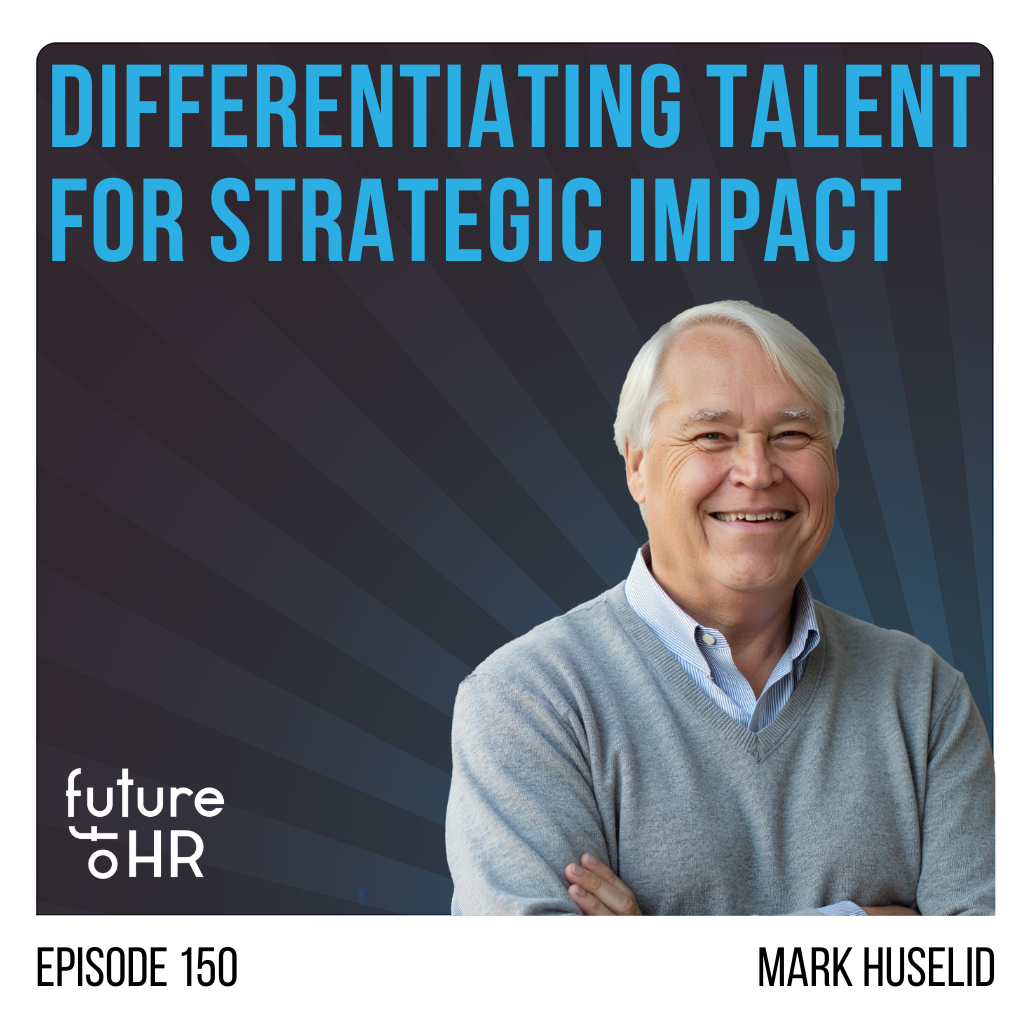
150
ep.
How can differentiating talent result in real business impact? Why is asking the right questions in workforce analytics so critical? My guest on this episode is Mark Huselid, Distinguished Professor of Workforce Analytics at Northeastern University During our conversation Mark and I discuss: Why most companies do not treat people data as rigorously as financial data—and why they should. The evolution from “critical roles” to “strategic work,” and why success now depends on pinpointing the specific work, not just the job titles, that drive results. Why most organizations over-invest in senior leaders and under-invest in developing early and middle career talent How HR and people analytics teams can bridge the gap with business leaders to ask better questions, not just provide more data. Why AI and workplace data will offer powerful insights—but also introduce risks like bias and outdated assumptions.

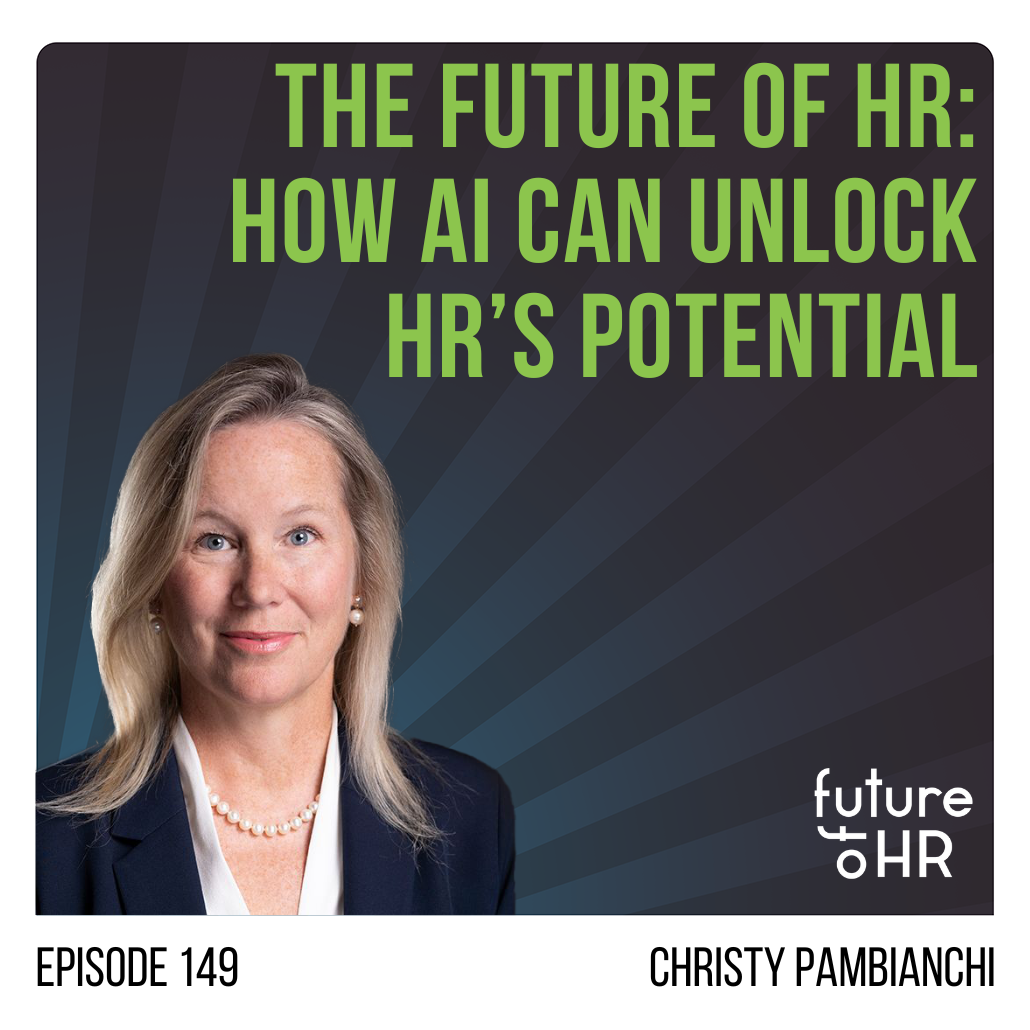
How can AI unlock HR’s potential? Why is it important that HR leaders are agile now and in the future? My guest on this episode is Christy Pambianchi, CHRO, Caterpillar Inc. During our conversation Christy and I discuss: How her early career at Pepsi taught her the importance of servant leadership and shaped her approach to HR Why it’s important for an organization to stay focused and never lose sight of why they exist. Why HR leaders need to be present and visible to build trust and hear real feedback from employees. Her optimistic view of AI as a tool for unlocking HR’s full potential Her widely shared LinkedIn post “Letter to My Younger Self” and the five lessons she wishes she learned earlier in her HR career.

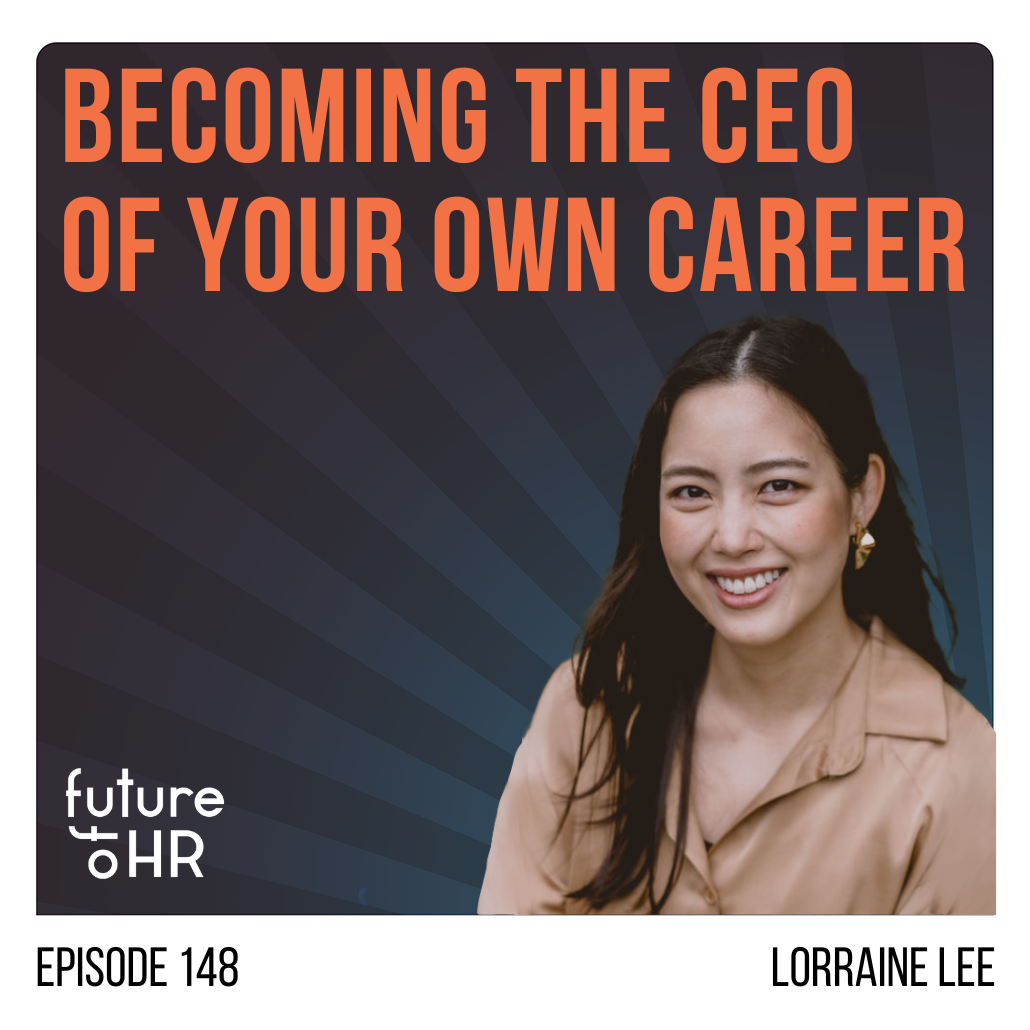
148
ep.
How do you create, shape, and strengthen your career brand? Why is showing up in the small moments is key to creating a strong presence? My guest on this episode is Lorraine Lee, Author of “Unforgettable Presence,” Keynote Speaker, Instructor at LinkedIn Learning and Stanford During our conversation Lorraine and I discuss: How she transitioned from her corporate career in tech to becoming an award-winning keynote speaker, LinkedIn instructor, and author. Why adopting a “CEO of your own career” mindset is essential for professional growth How HR leaders build a strong, authentic presence on LinkedIn, even if you’re just starting out. How you can use her EPIC Career Brand Framework to achieve your career goals. How the “Think-Do-Feel Matrix” helps you prepare, understand, and connect with your audience.

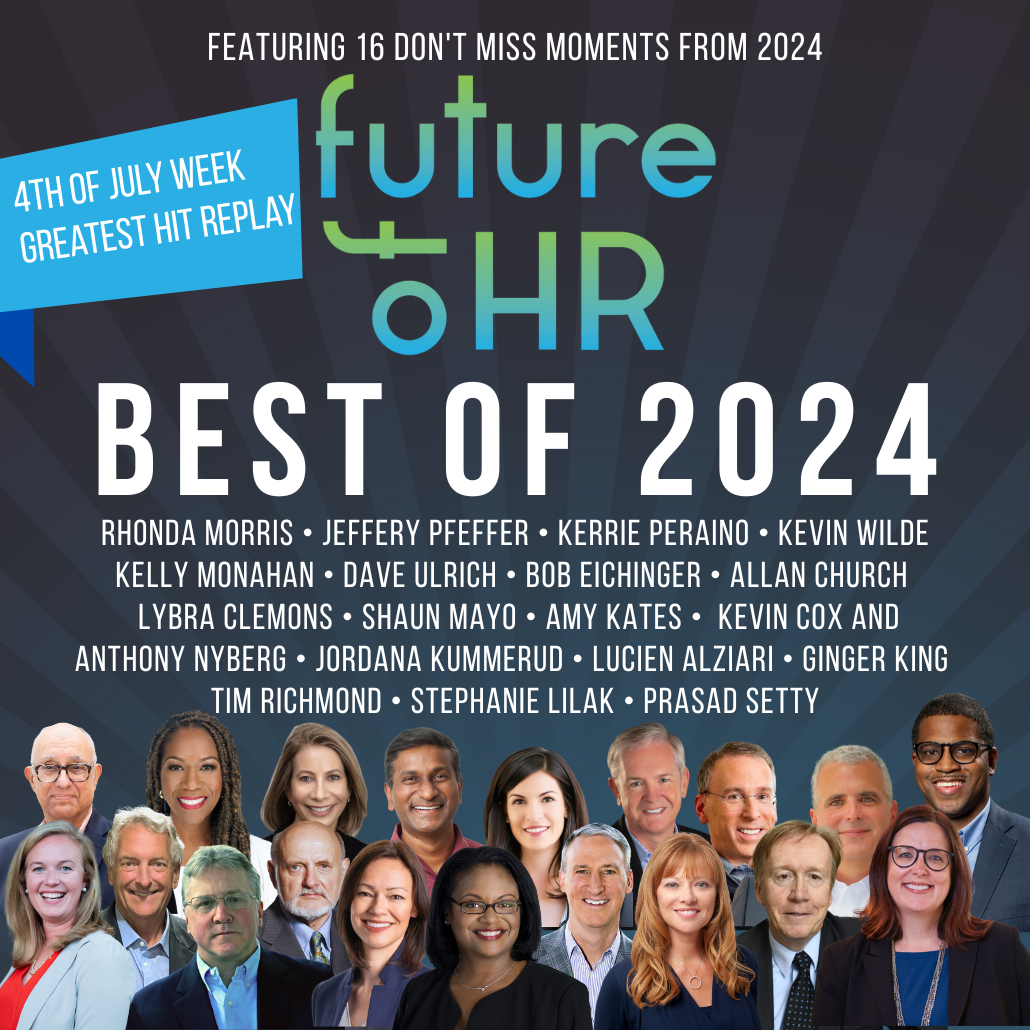
147
ep.
Due to the US holiday, 4th of July, I am re-publishing one of our greatest hits and most popular episodes. The “Best of 2024” episode features sixteen don’t miss moments from HR executives and thought leaders who… So, who can you expect to learn from on this episode? Rhonda Morris, CHRO, Chevron Jeffrey Pfeffer, Professor Stanford University and Author of 16 books including the “7 Rules of Power Kerrie Peraino, Chief People Officer at Verily Kevin Wilde, Executive Leadership and Talent Development Expert & Author Kelly Monahan, Managing Director, Research Institute at Upwork Dave Ulrich, Bob Eichinger, and Allan Church Lybra Clemons, a C-Suite executive with experience leading talent, culture, and DEI Shaun Mayo, Chief People Officer, Arizona Cardinals Football Club Amy Kates, Organization Design Expert, Consultant, Educator, and Author of Five Books Kevin Cox, Founder and President of LKC Advisory & Anthony Nyberg, Director, Center for Executive Succession at University of South Carolina Jordana Kammerud, SVP & CHRO, Corning Lucien Alziari, EVP and CHRO of Prudential Financial, Inc Ginger King, CHRO, Kohler Co. Tim Richmond, EVP & Chief Human Resources Officer, AbbVie Stephanie Lilak, EVP & Chief People Officer, Mondelez International Prasad Setty, Lecturer, Stanford GSB, Advisor, Former VP at Google, People Ops and Workspace

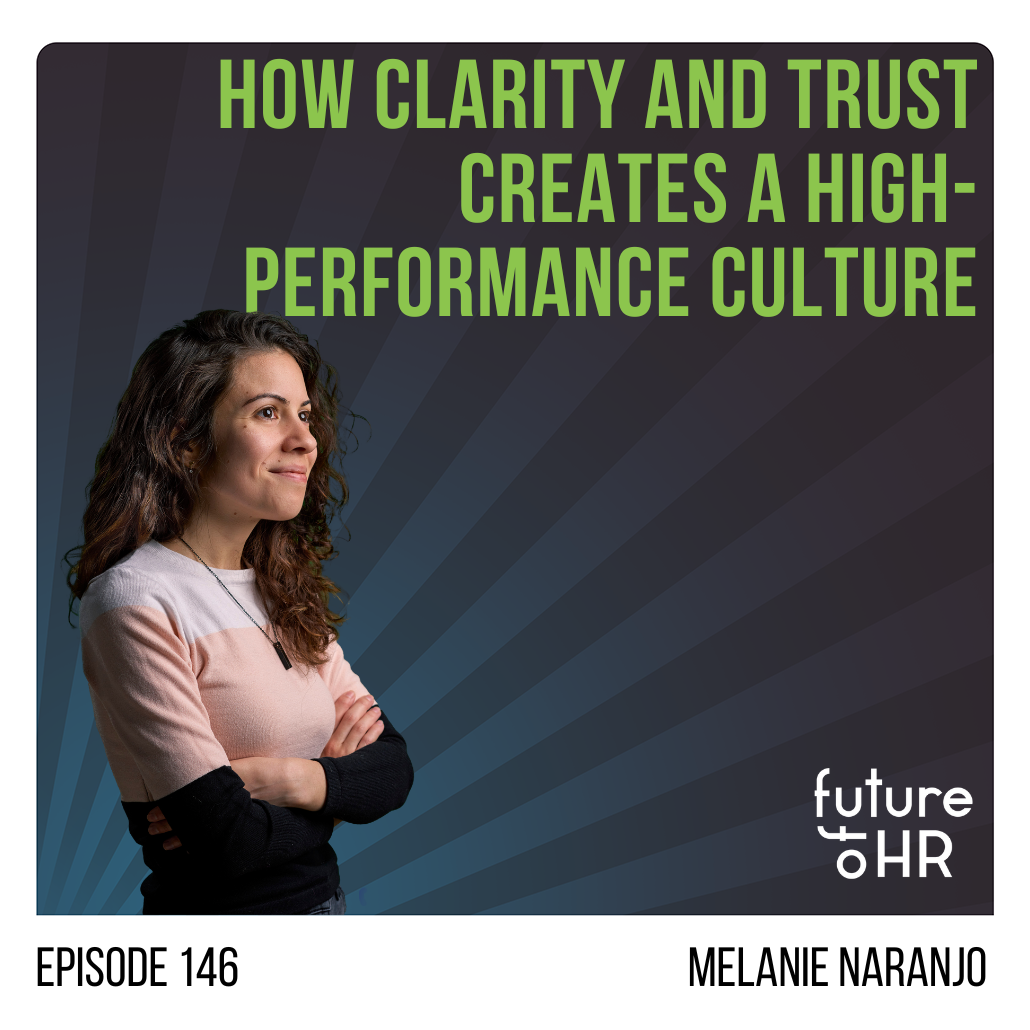
How can you build your brand on LinkedIn while being true to who you are? Why should you be transparent about performance expectations with new hires? My guest on this episode is Melanie Naranjo, Chief People Officer at Ethena During our conversation Melanie and I discuss: What it’s like to lead HR at an HR tech company and why Melanie recommends the experience to other HR professionals. How she built her personal brand on LinkedIn to over 60,000+ followers by being authentic and real. Melanie’s advice on how to effectively partner with your CEO to drive the business forward. How being transparent about high-performance expectations—and consequences for poor performance—creates a culture of clarity and trust. How learning in public promotes accountability and builds network and community.

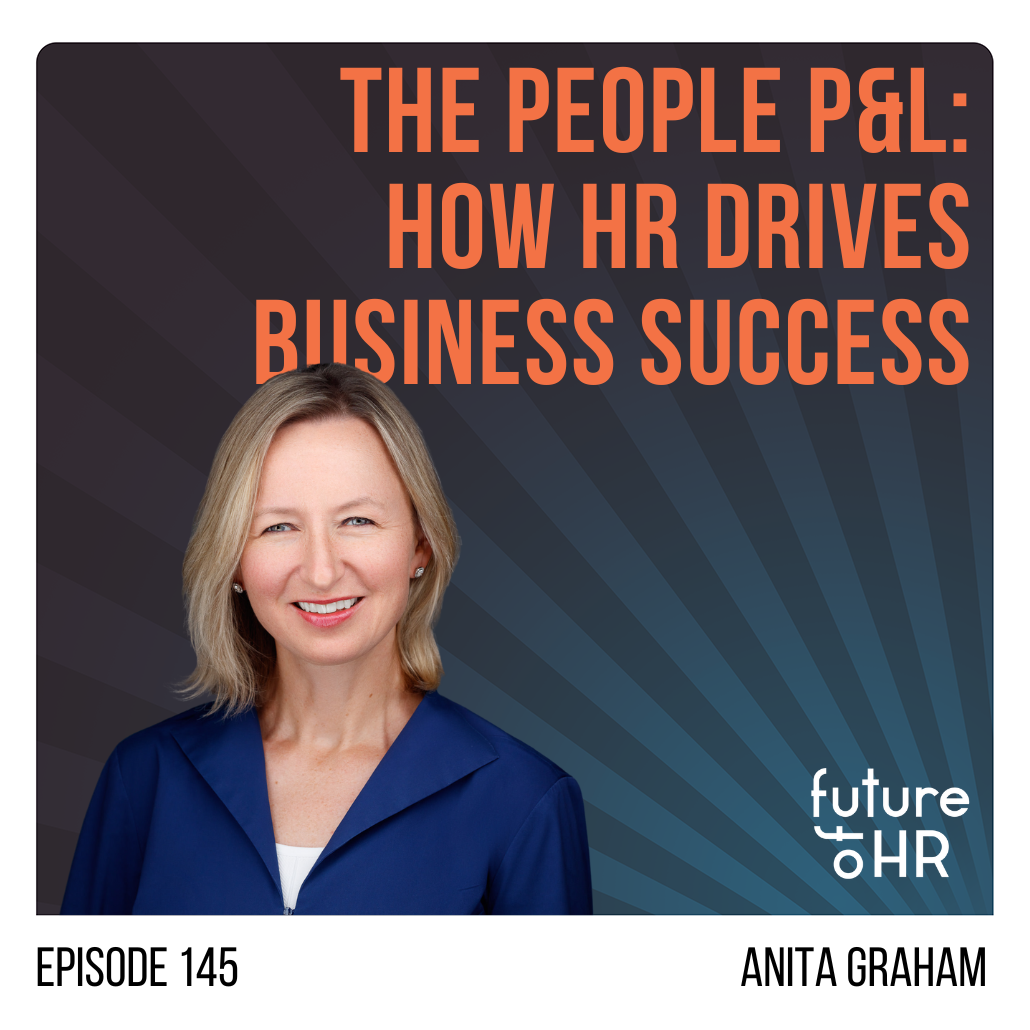
How can you create a people strategy that aligns to and drives your business strategy? What is a People P&L and why does your organization need one? My guest on this episode is Anita Graham, EVP & CHRO for Labcorp. During our conversation Anita and I discuss: Why taking initiative matters for your career and how early-career professionals can develop this skill. Why you should be intentional with your career choices but remain open to unexpected opportunities. How to build an aligned and high-performing HR leadership team. Why you need a 'People P&L' and the impact it can have on your business. Why you should think about your HR strategy in 3-5 year timeframes.


